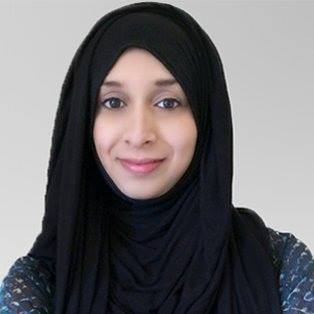I wear the hijab. It’s a choice I make every day—a personal, conscious decision rooted in my faith and identity. But recently, I’ve watched with concern as politicians, particularly within Reform UK, have called for a ban on the burqa. This is not a simple debate about clothing; it’s about women’s rights, agency, and how we as a society treat difference.
On June 4, 2025, Reform UK MP Sarah Pochin publicly called on Labour leader Sir Keir Starmer to introduce a burqa ban in the UK, citing “public safety” and pointing to bans in France and Belgium as models. But this isn’t the whole story. Pochin’s statement sparked immediate backlash—even from within her own party.
Zia Yusuf, Reform UK’s chairman and one of the few Muslim voices in the party, condemned her call as “a dumb thing for a party to do,” emphasizing that it wasn’t official policy and that such rhetoric risked alienating communities. Yusuf’s public disagreement led to his resignation just days later, a decision he later reversed, explaining that his resignation was impulsive but that he remained concerned about the party’s direction.
For me, and many Muslim women, this isn’t just political theatre. It’s a direct challenge to our dignity and autonomy. The burqa, the niqab, the hijab—these are not signs of oppression imposed from outside but expressions of faith chosen by millions of women. To outlaw them is to deny women the fundamental right to decide for themselves how to present in public.
Those advocating for a ban often frame it as a matter of “public safety” or “liberation,” but this rhetoric misses the mark. There is scant evidence that face coverings threaten security any more than any other clothing choice does. In fact, blanket bans tend to push women into further isolation, cutting them off from education, employment, and social life—precisely the opposite of liberation.
But there is a distinction between debate and singling out Muslim women’s bodies for political gain.
When politicians like Pochin use Muslim women’s dress as a symbol in a wider culture war, they reduce complex lives to simplistic stereotypes.
The double standards are glaring. We would never tolerate laws telling non-Muslim women what they can or cannot wear, yet Muslim women’s clothing choices are legislated and policed. This is not about equality; it is about othering.
As someone who has faced Islamophobia for simply wearing a hijab—being shouted at on the street, questioned in professional settings, and having my credibility undermined—I am painfully aware of the consequences of such political rhetoric. If wearing a headscarf invites hostility, imagine the effect of criminalising a full-face covering. It sends a message that some women are unwelcome in public spaces unless they conform to a prescribed dress code.
This is a matter of human rights. The right to freedom of religion, the right to express identity, and the right to make choices about one’s body must be respected. Banning the burqa doesn’t empower women; it erases their agency and restricts their participation in society.
We must listen to the voices of Muslim women themselves. Many who wear the niqab or burqa say they feel safer, more comfortable, and more respected when covering. To dismiss their lived experiences is patronising and damaging.
The focus should be on combating genuine discrimination, tackling Islamophobia, and fostering inclusive communities—not on policing women’s bodies. True liberation comes from choice, not compulsion.
For the sake of human rights and women’s autonomy, we must reject calls for burqa bans—and instead build a society where all women are free to make their own choices. The debate about burqa bans is far from settled. But what must be clear is this: denying women the right to wear what they choose in public spaces is a step backwards. It undermines the principles of freedom and respect that should define any democratic society.
A ban on the burqa would not only be a violation of religious freedom, but also a dismissal of women’s agency—a message that society does not trust them to make decisions for themselves.
Instead of pushing women out of public life through punitive measures, we should be investing in real solutions: tackling rising Islamophobia, addressing barriers to employment and education, and promoting understanding between communities. Muslim women, like all women, deserve the right to define their identities on their own terms—free from judgment, coercion, or exclusion.
No one is liberated by force. True empowerment comes when women are given the space to speak, choose, and live authentically. If we truly care about women’s rights, then we must champion their right to cover—as fiercely as we would defend their right not to. Freedom means nothing unless it applies to all of us equally. And that includes the right to wear the burqa.
The views expressed in this article belong to the author and do not necessarily reflect the editorial policy of Middle East Monitor.

![A visitor wearing a niqab talks on a mobile phone at the top of the Marble Arch Mound in London, U.K., on Wednesday, Aug. 18, 2021. [Hollie Adams/Bloomberg/Getty Images]](https://i0.wp.com/www.middleeastmonitor.com/wp-content/uploads/2025/06/GettyImages-1234756370.jpg?fit=920%2C613&ssl=1)







